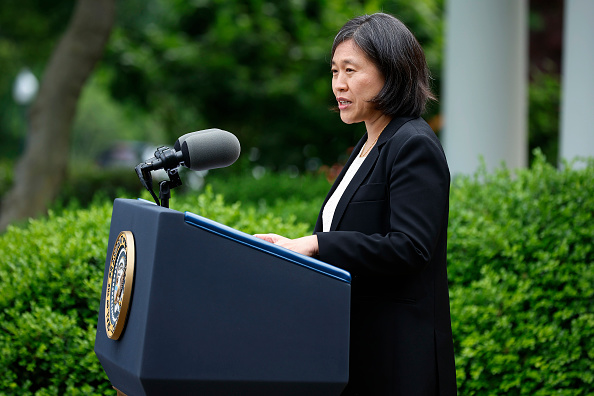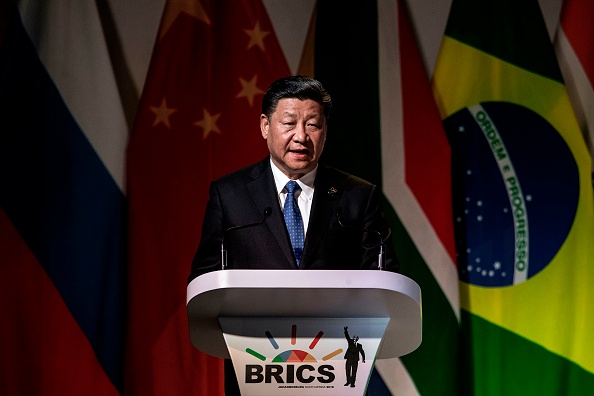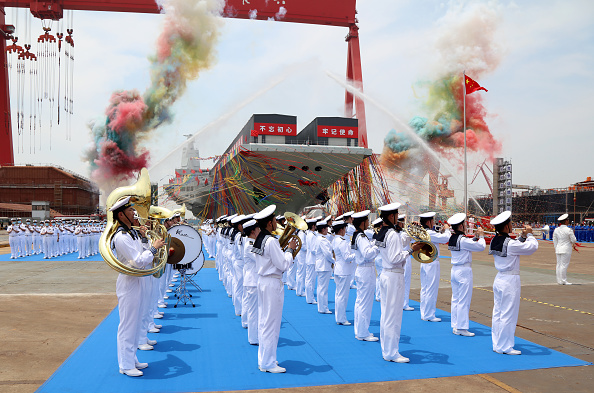
 Tools in the Box
Tools in the BoxAs the U.S. continues to face sky-high inflation, Trade Representative Katherine Tai said that she views tariffs on Chinese goods as "a significant piece of leverage" in the U.S.-China trade relationship.
"A trade negotiator never walks away from leverage," she said.
Under pressure from lawmakers during testimony before a U.S. Senate Appropriations subcommittee, Tai said that removing the tariffs would only have a limited effect on controlling short-term inflation. She clarified that President Biden is still weighing a decision about the tariffs, which have been imposed on more than $360 billion of goods manufactured in China, including some consumer products. No decision is likely before next week's Group of Seven leaders summit. Critics of the tariffs say some of the levies are passed onto the American consumer, exacerbating the price of goods.
In a contradictory tone, former U.S. ambassador David Adelman has said that removing tariffs on imported Chinese goods will strip 1% off inflation in the U.S. over time and return confidence to the economy, which could help President Joe Biden and the Democrats in upcoming elections.
Calling it "one important tool in [Biden's] toolbox," Adelman, who served as U.S. ambassador to Singapore during the Obama administration, pointed to the President's "ability to relieve the pressure on the American economy and American consumers that is caused by these very high tariffs rates that are imposed on more than $370 billion annually of Chinese imports."
Read more in "America's Strategic Direction on Trade," by Zhou Xiaoming, a Former Deputy Permanent Representative of China's Mission to the UN Office in Geneva.
 Mutual Concern
Mutual ConcernThe leaders of the BRICS group of nations are meeting this year in China amid major shifts in the geopolitical order. With the Ukraine war looming in the background, the five leaders of China, Brazil, India, Russia, and South Africa came together to discuss issues of mutual concern as part of the summit themed around ushering in a "new era" for global development.
In his address, Chinese President Xi Jinping said the group's purpose was to "make the world a more stable place" and "speak out for equity and justice." He then appeared to take aim at the West, although never referred to the U.S. by name.
"Anyone who attempts to turn back the wheel of history and block others' way will only have his own path blocked," he said.
A glare of attention has been trained on President Putin's attendance, as it was his first time attending a forum with the heads of major economies since launching the invasion of Ukraine.
Ahead of the summit, Xi told the BRICS business forum that the "Ukraine crisis is... a wake-up call" and warned against "expanding military alliances and seeking one's own security at the expense of other countries' security."
Chinese state media has praised the BRICS for boosting "multilateral cooperation with non-Western styles, forms and principles," and stressed the importance of the bloc at a time when "the U.S. (is) pulling its Western allies to 'rebel' against globalization."
 A Homegrown Vessel
A Homegrown VesselRed banners waved and soldiers lined up to celebrate as China revealed its first "homegrown" aircraft carrier last week in a ribbon-cutting ceremony held at Jiangnan Shipyard in Shanghai. The vessel, called the "Fujian," is a Type 003 warship, according to the nation's defense ministry, and has advanced aircraft launch technology similar to U.S. carriers.
The launch marked a milestone in the country's push for a "blue-water navy" capable of operating far from Chinese shores, as well as Xi Jinping's multiyear drive to modernize the country's military and cut reliance on foreign military suppliers.
The Fujian is China's third carrier, also ranking as the largest and most sophisticated it has ever built. The vessel is the first in the country's fleet to be equipped with an electromagnetic catapult, and can send off shipboard aircraft in rapid succession. While the unveiling of the Fujian was a momentous day for China, the PLA Navy, and military watchers around the world, it will still need to go through at least 18 months of testing before it will be combat-ready.
China doesn't disclose detailed breakdowns of its spending, but analysts have noted that Beijing's draft dense budget for 2022 is up 7.1% from last year.
Learn more in "Inside a New Generation of Aircraft Carrier," a video interview with Zhou Bo, a Senior Fellow at the Center for International Security and Strategy at Tsinghua University.
Prepared by China-US Focus editorial teams in Hong Kong and New York, this weekly newsletter offers you snap shots of latest trends and developments emerging from China every week, while adding a dose of historical perspective.
- 2022-06-17 Unprecedented Oversight
- 2022-06-10 Squaring Off
- 2022-06-03 Diplomatic Chills
- 2022-05-27 Competing Visions
- 2022-05-20 Common Ground
- 2022-05-13 Bilateral Interests
- 2022-05-06 Vying for Mutual Benefit
- 2022-04-29 Seeking Relief
- 2022-04-22 Tipping Point
- 2022-04-15 “Persistence is Victory”
- 2022-04-08 No Divorce
- 2022-04-01 Auditing Accountability
- 2022-03-25 Playing Policy
- 2022-03-18 One Hand Cannot Clap
- 2022-03-11 Political Forecast
- 2022-03-04 Competitive Advantage
- 2022-02-25 A Sovereign Tightrope
- 2022-02-18 Strategic Disengagement
- 2022-02-11 In the Thick of It
- 2022-02-04 Year of the Tiger